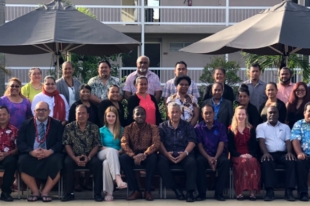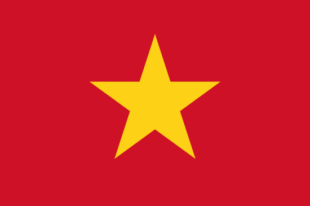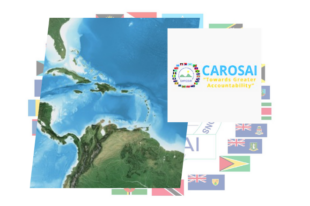Developing a Global Voice for INTOSAI through Communication and Collaboration
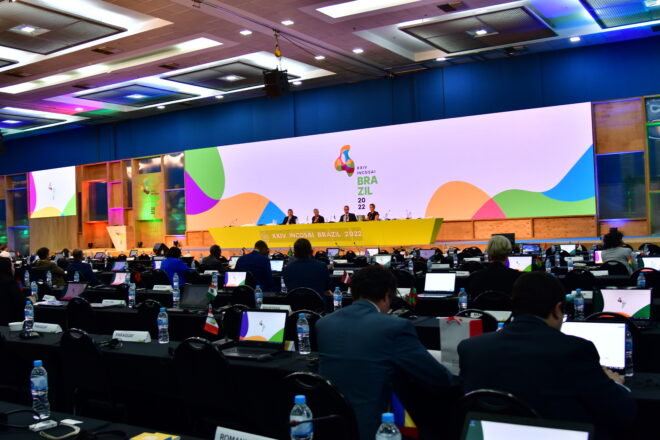
Supreme Audit Institutions (SAIs) independently and objectively audit their governments to ensure that the use of public funds benefits citizens. As the challenges that face the world become more complex, SAIs can utilize and amplify their voice on an individual, regional, and global levels to demonstrate their impact and ensure accountability.
The Theme II “Global voice, global outcome, far-reaching impact” paper, compares the audit and accountability across SAIs. It identifies independence, professionalism, as important for instilling trust in SAIs, and improve public finance and administration management.
The paper identifies commonalities of SAIs and shares some of the differences, such as communication and technology capabilities.
Incoming INTOSAI Governing Board Chair Dantas Shares the Importance of Communication and Collaboration for INTOSAI’s Global Voice
Minister Bruno Dantas, President of the TCU and incoming Chair of the INTOSAI Governing Board, said the global voice of INTOSAI communicates Its values and impact. To more effectively leverage this voice, INTOSAI can expand and increase communication. There is significant value in communicating the work of SAIswork around common, high relevance themes. He echoed INTOSAI’s motto, mutual experience benefits and said SAIs can cooperate with to foster learning and development toward professionalism, independence, and comprehensiveness of analysis. Each SAI contributes to the collaborative process of institutional learning within their own countries, with other SAIs in INTOSAI regional organizations, and with peers around the world. He also said, “INTOSAI has also been aware for a long time that as a multilateral institution, it is not alone in the world.” INTOSAI recognizes the benefits of engaging with the international community, as seen through partnerships with the INTOSAI Donor Cooperation to help SAIs build capacity, and collaboration with the United Nations, the World Bank, and the OECD.
Panelists Discuss INTOSAI’s Global Voice and Intergovernmental Cooperation
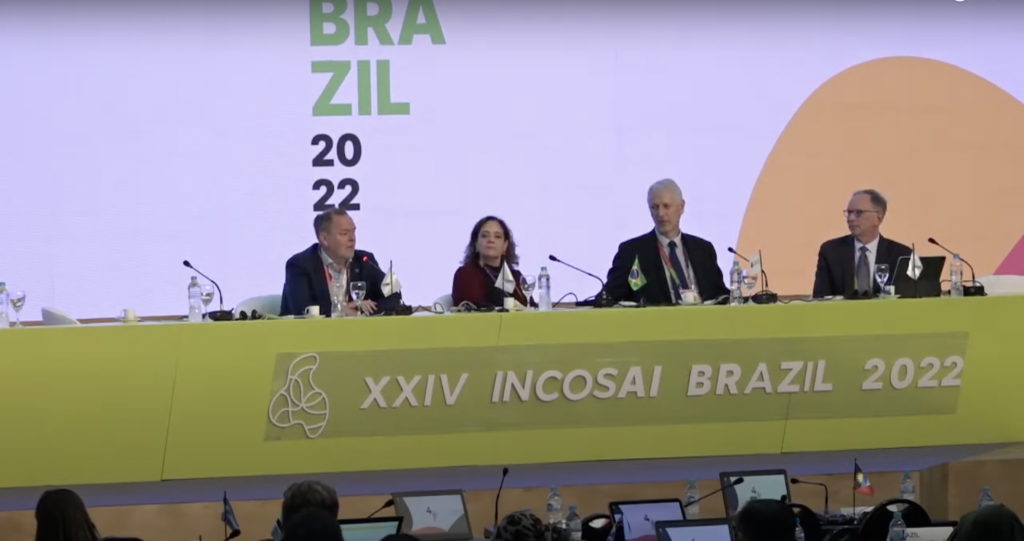
Mr. János Bertók, Acting Director of the Organisation for Economic Co-operation and Development (OECD) Public Governance Directorate, highlighted OECD’s role in dialogue for governments, SAIs, stakeholders and civil society. OECD has an auditors alliance, which brings together internal control perspectives and external auditors to discuss and develop professional technical aspects of public sector audit. OECD supports greater understanding, preparedness, and resilience to future crisis situations, where SAIs can play a key role in accountability. He said OECD looks forward to strengthening collaboration with SAIs and the INTOSAI community, and supporting SAIs as a knowledge hub for evidence through data and analysis.
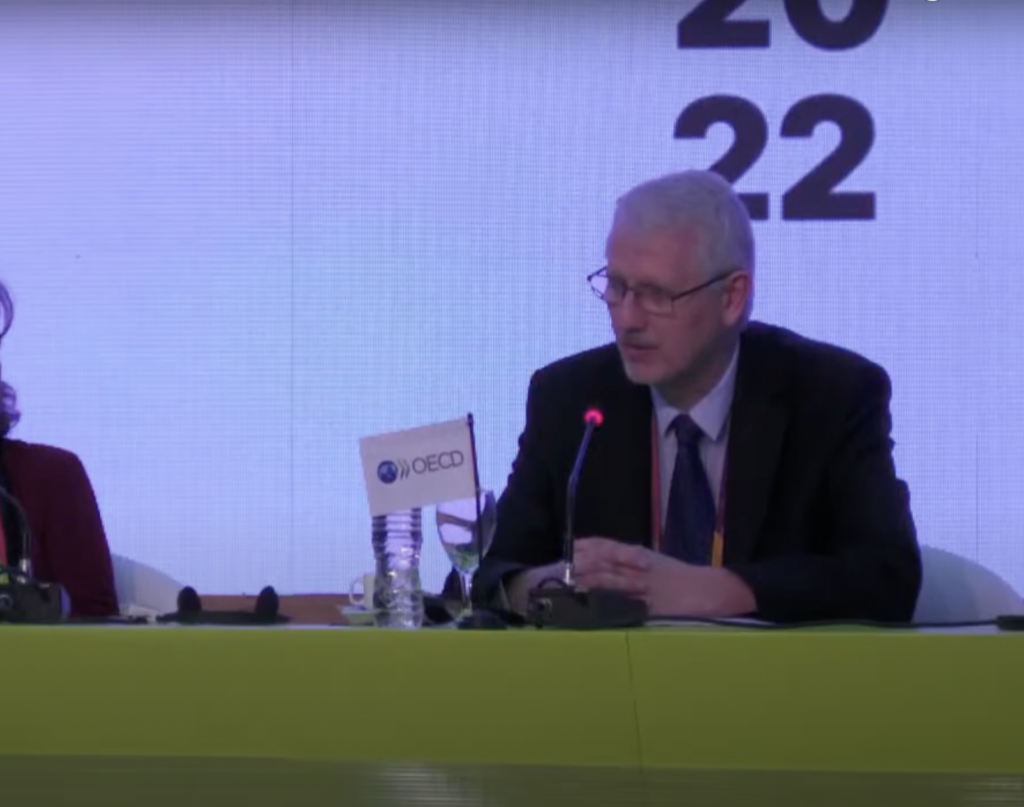
Mr. Bob Saum, Director of Standards, Procurement and Financial Management at The World Bank, said credibility and objectivity can enhance understanding and strengthen INTOSAI’s global voice. SAIs can recognize the most relevant issues at country level, identify commonalities across regions, and consider the most important topics to elevate to the global level. He emphasized the importance of INTOSAI’s regional bodies and their expertise in informing public debate. They can expand the regional and global understanding of the drivers of, and response to situations of fragility and crises. Despite increased access to digital platforms and mobile devices, millions of people do not have a voice in the public arena. INTOSAI and member SAIs can serve as an independent and objective voice for those who do not have one. He said the World Bank remains a steadfast partner to INTOSAI and SAIs around the world.
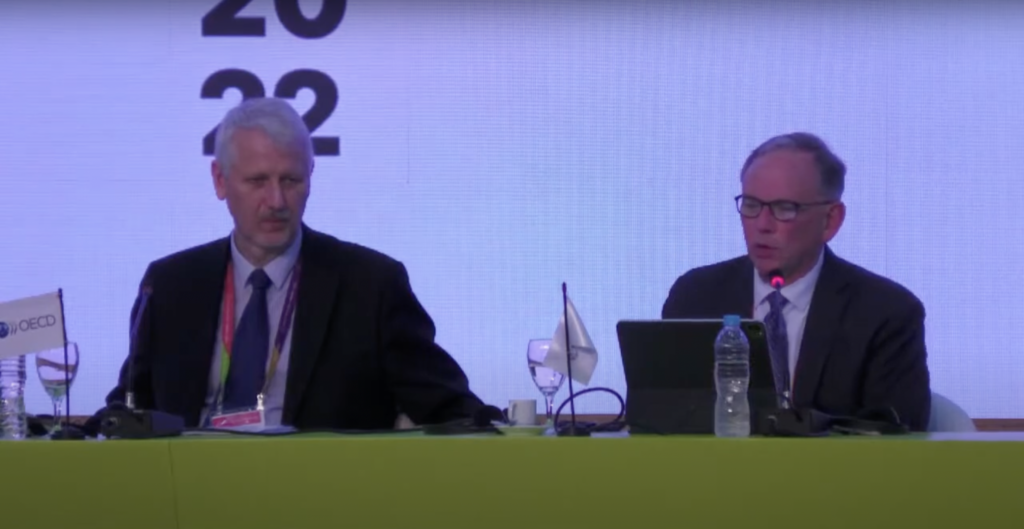
Mr. Einar Gørrissen, Director General of the INTOSAI Development Initiative (IDI), presented four reflections on strengthening INTOSAI’s voice. First, Mr. Gørrissen said INTOSAI should strengthen coordination and communication among the INTOSAI community at the SAI, regional, and global levels. Second, INTOSAI can create shared purposes. As INTOSAI is a complex ecosystem made up of stakeholders with varying roles and responsibilities, having a shared vision and purpose will help improve the dialogue of working together. Third, INTOSAI should be proactive and have inclusive outreach to SAIs’ communities and other stakeholders. Listening to different voices and experiences helps INTOSAI understand those who are at risk of being left behind. Finally, INTOSAI should deliver value through high quality, responsive, timely, and relevant audits to improve compliance and public service delivery. Mr. Gørrissen said IDI strongly believes that effective, accountable, and inclusive SAIs contribute to improved lives and better societies.
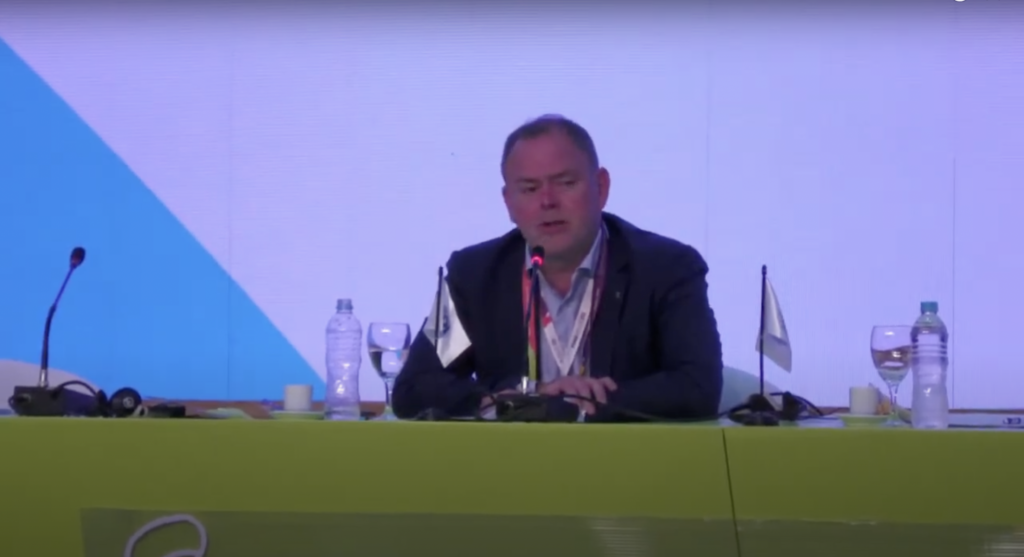
Lessons Learned and Reflections from Breakout Discussions in Official INTOSAI Languages
Following breakout discussions, the plenary discussions on the final day focused on lessons learned and reflections.
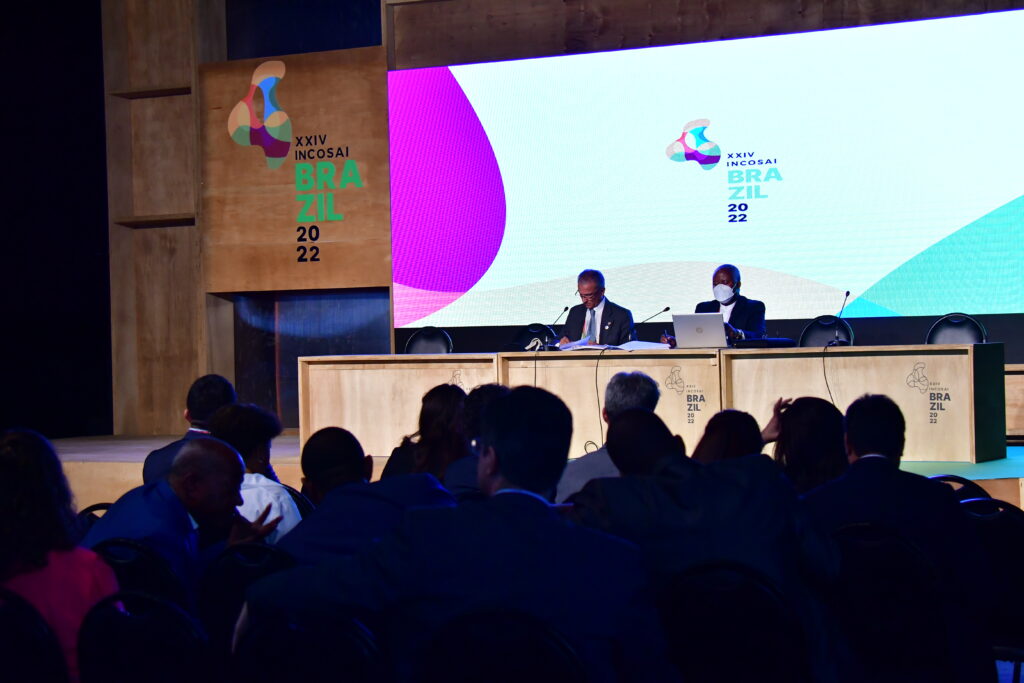
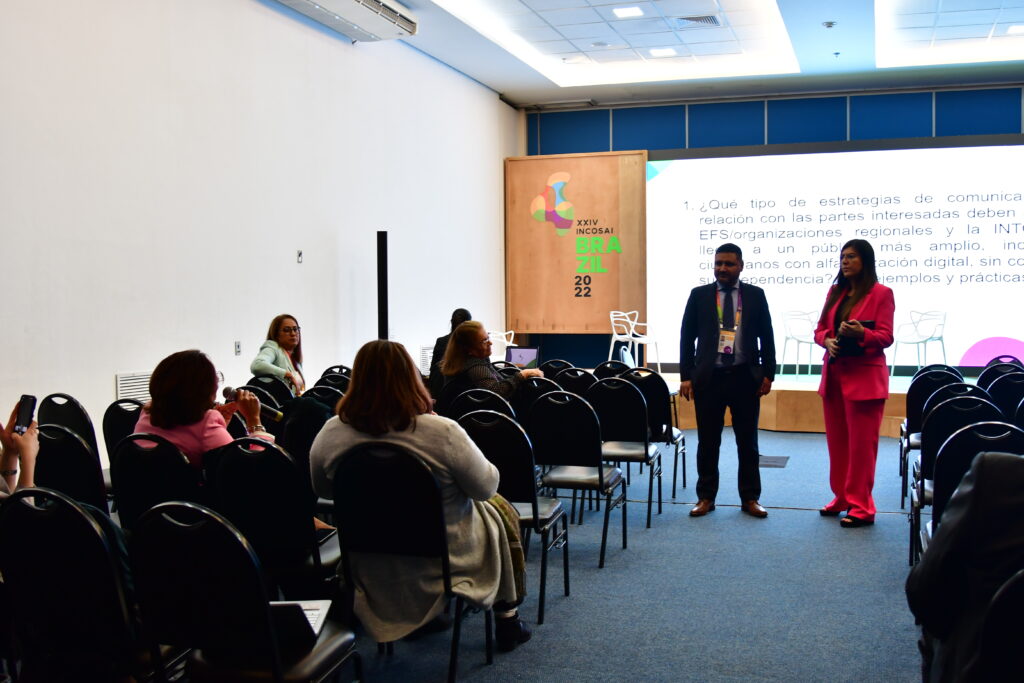
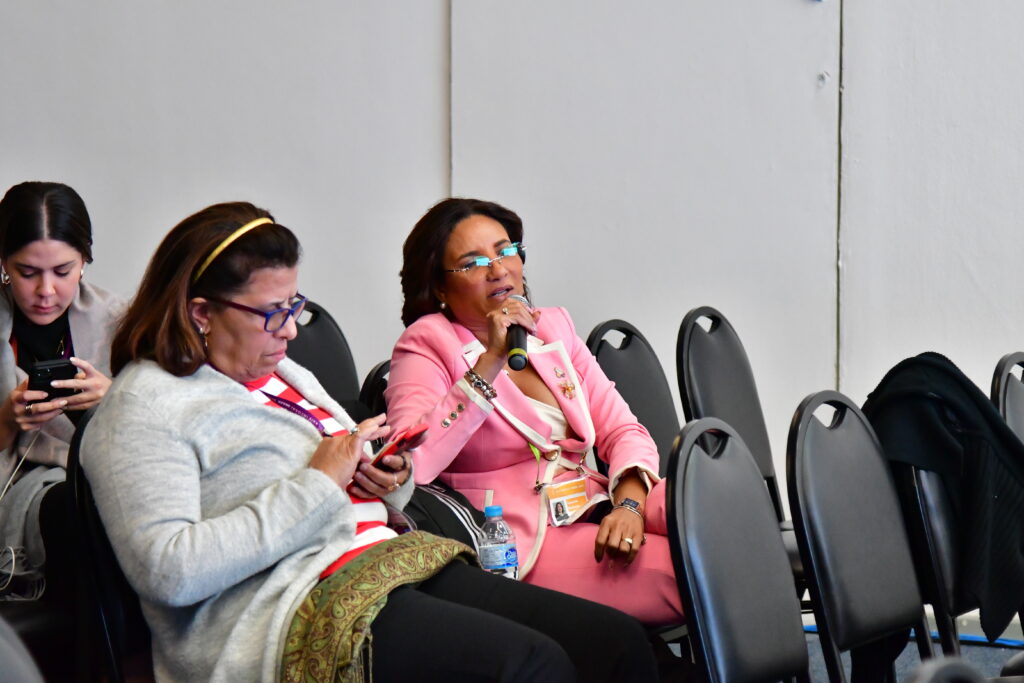
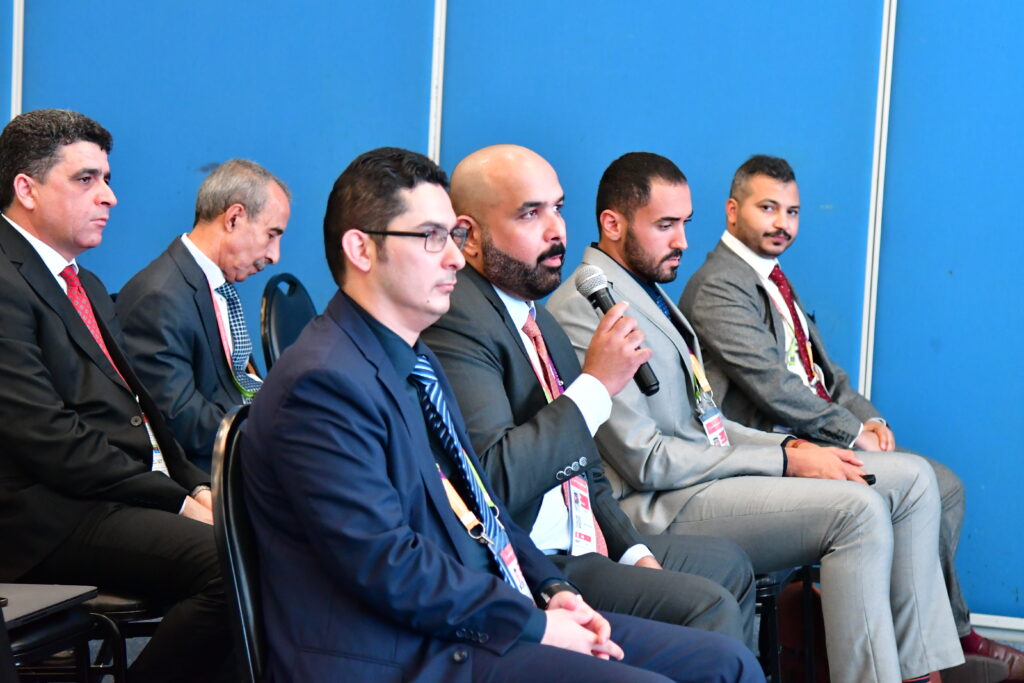
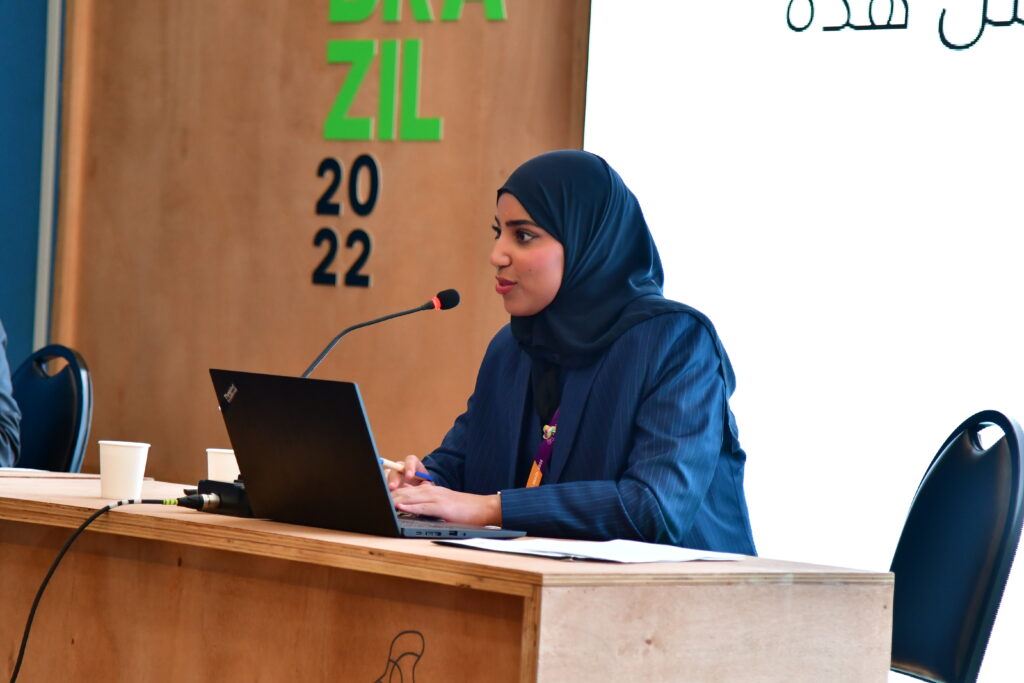
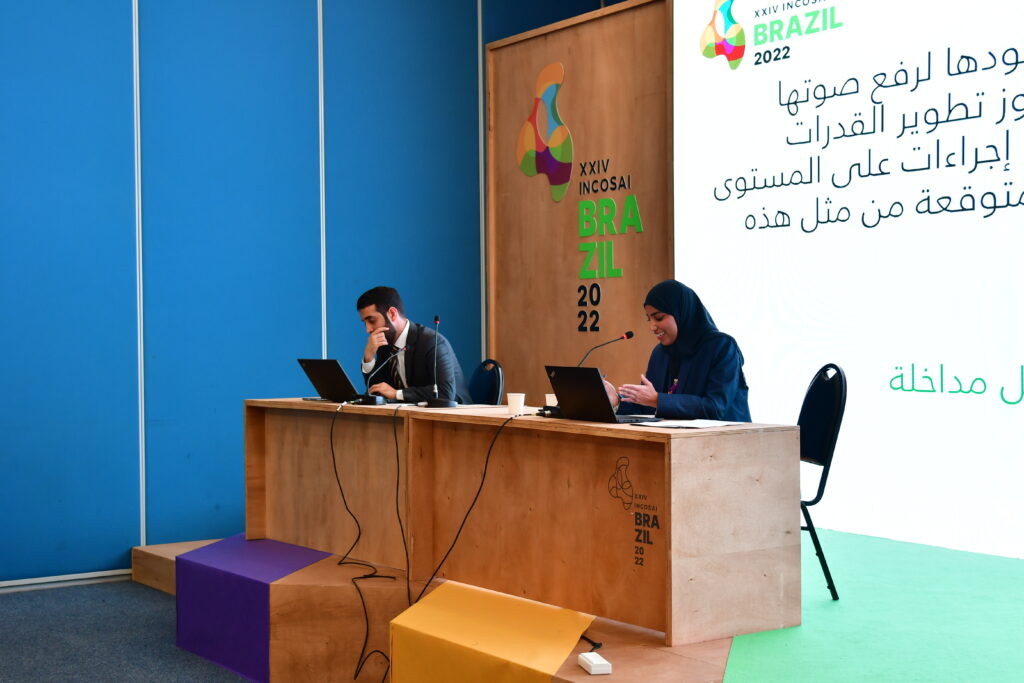
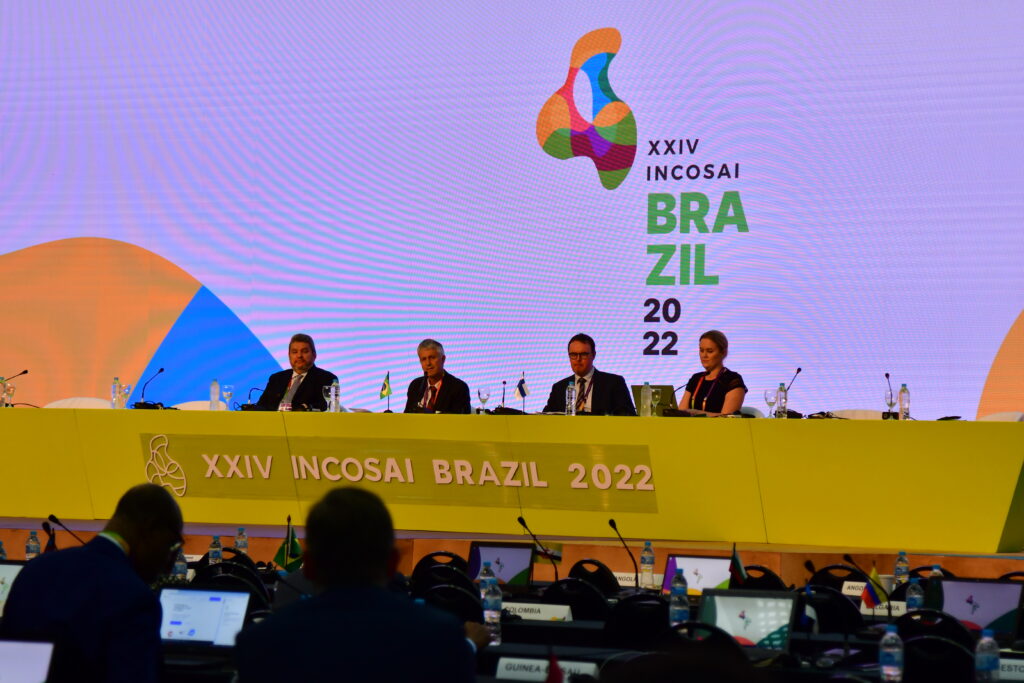
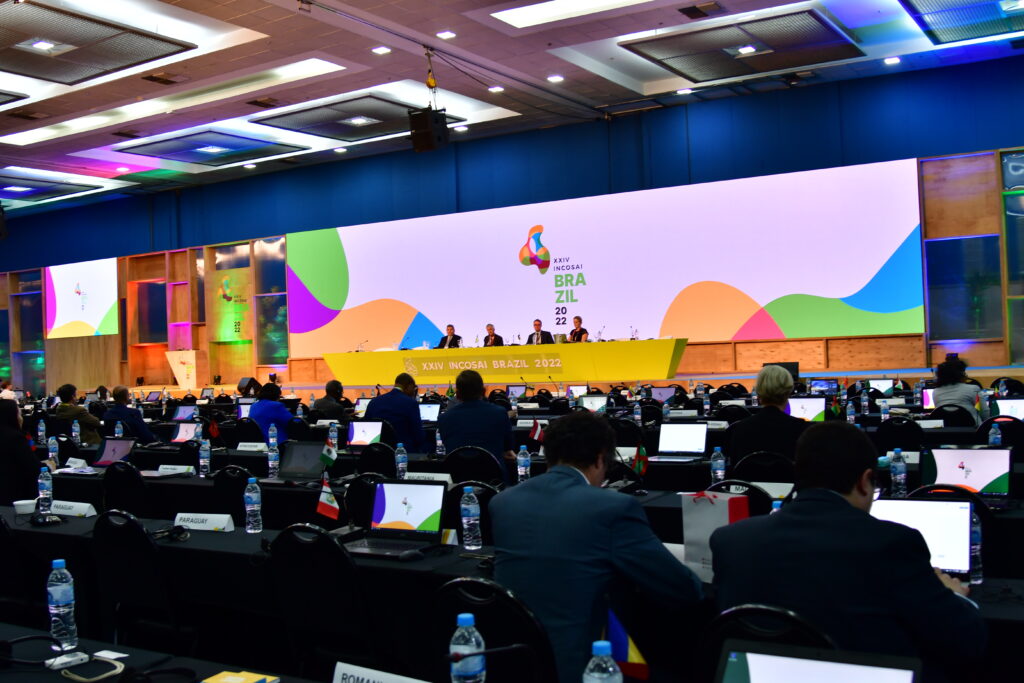
SAI Independence
SAIs universally agreed that SAI independence was one of the most important aspects to strengthening the INTOSAI global voice. SAIs should have their independence enshrined legally, and should have financial autonomy to manage their budgets. Enhancing and fostering independence facilitates the ability of SAIs to conduct audits, publish and disseminate audit reports, and follow up on recommendations. By strengthening SAI independence, SAIs can credibly meet their objectives, and enhance transparency to foster trust with the public and citizens they serve. INTOSAI continues to support SAIs to increase and maintain their independence.
Strategic External Communication Strategies
SAIs concurred that there is a need for enhanced external communication strategies to help citizens be aware of the SAI role in public accountability, and the impact of SAI work. Many SAIs faced similar challenges that the public had little awareness of the SAI, its objectives, and its reports. SAIs agreed that having coordinated strategic external communication strategies would help make SAI audit reports wider known to a greater audience, and would unify the INTOSAI message and voice.
SAIs serve citizens, and communication and advocacy is an essential part of SAI audit work. Although individual SAIs may vary in organizational format and responsibilities, it is important to communicate to the public that SAIs, and implement audits to address corruption, and promote transparency and accountability. In highlighting the importance of the INTOSAI global voice, SAIs and INTOSAI should consider that recipient of SAI work is often a national level stakeholder, or citizen. However, it is possible to aggregate national audit results to speak with one global voice.
SAIs and INTOSAI should understand the needs of, and how to best communicate with their audience. Traditional methods of communication have shifted, and SAIs should understand the communication needs of the present day. Targeting and adjusting communication would allow SAIs to reach their audience and help them understand the role and impact of the SAI. SAIs and INTOSAI should also conduct outreach to media and civil society to better reach citizens.
INTOSAI has established a Task Force on Communication, with SAI Brazil and the INTOSAI General Secretariat as chairs working within the Policy, Finance, and Administration Committee. The task force will develop methods for using communication as a strategic tool for INTOSAI, and strengthen the global voice of INTOSAI as the authority on public audit and external control. The Task Force met at INCOSAI to initiate discussions and will continue to work throughout 2023 to coordinate and improve internal and external INTOSAI communication.
Intergovernmental Organizational Partnerships
INTOSAI should continue and strengthen partnerships with intergovernmental organizations to contribute to Sustainable Development Goal 16 of building effective, accountable and inclusive institutions. Cooperation with organizations such as the World Bank, the International Monetary Fund, and United Nations, for example, can help enhance the role of international auditing standards in public sector auditing. SAIs agreed that the INTOSAI regional organizations would make strong representatives for partnerships with these intergovernmental organizations on behalf of the SAIs in the region.
The practical guide on “Enhancing the collaboration between Supreme Audit Institutions and Anti-Corruption Bodies in preventing and fighting corruption”, a collaboration between INTOSAI with the United Nations Office on Drugs and Crime, led by SAI United Arab Emirates serves as a key example of working together as a global voice. The Guide provides practical advice on building and enhancing working relationships among authorities domestically and at the regional and global levels. In addition, it provides examples of good practices in prevention, enforcement, investigation and asset recovery, international cooperation, knowledge and capacity-building, and on the use of information and communication technologies.
Knowledge Sharing, Capacity Building and Digital Literacy
To strengthen INTOSAI and SAI’s global voice and impact, SAIs should build upon their capacities and share knowledge within the INTOSAI community. SAIs noted that cooperative audits identify key policy priorities within the individual SAI context, and define relevant strategies and topics in the regional and national contexts to serve the interests of citizens. The exchange of best practices through cooperative audits and knowledge sharing unifies the voices of many SAIs into one, global INTOSAI voice.
SAIs require qualified staff, high quality data, and digital literacy to perform their audit work. To better reach citizens and civil society and share the results and impact of SAI reports, SAIs should build capacity to use modern technology and social media. The INTOSAI community at the global and regional level can cooperate to professionalize SAIs. Digital literacy and technical trainings could assist SAIs with sharing mission statements, strategic plans, and reports via the internet and social media. Building SAI digital literacy will help citizens access reports and understand the important role of SAIs in fostering accountability
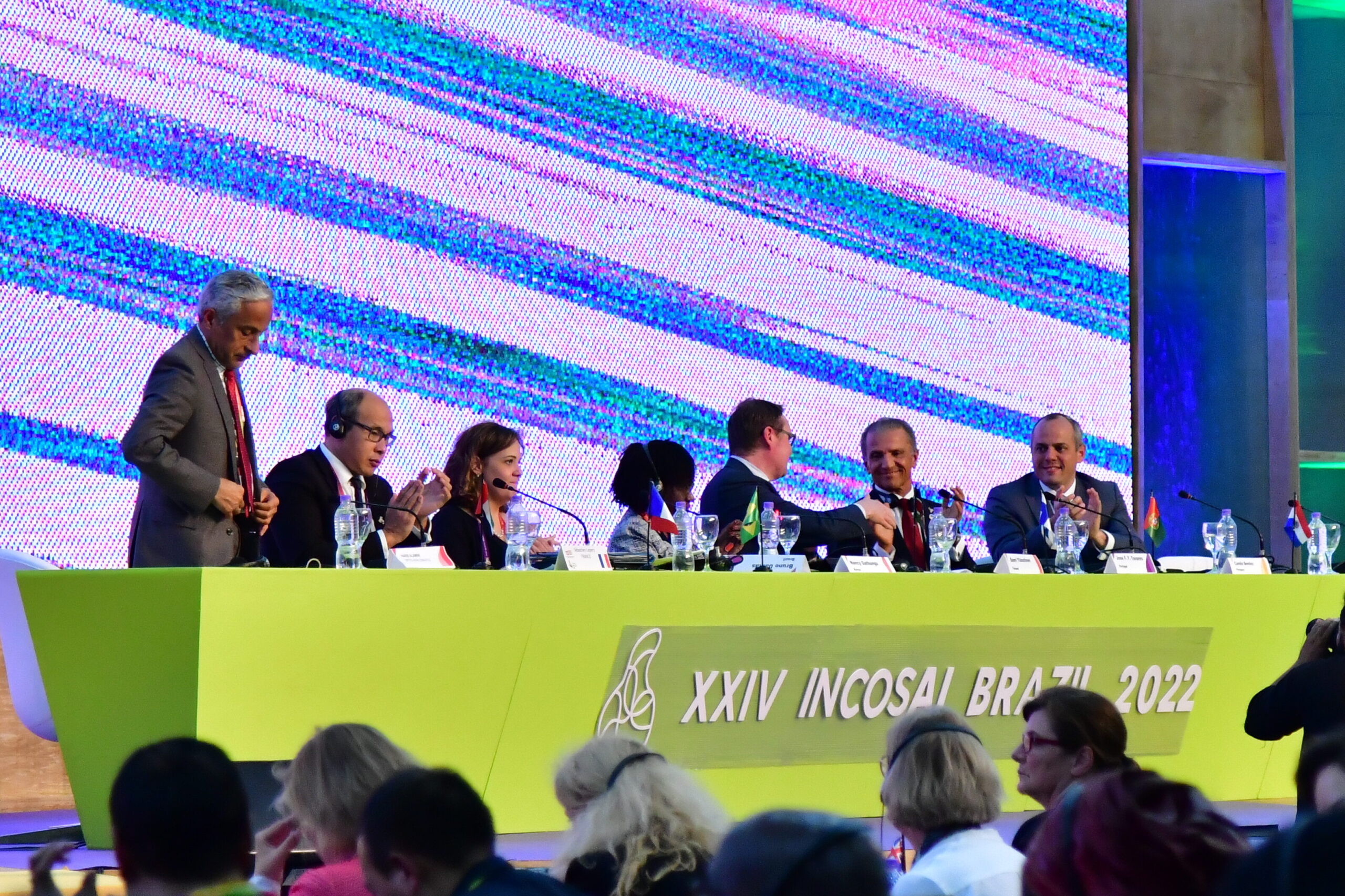
Conclusion
INTOSAI’s commitment to public auditing, accountability, and transparency can facilitate a unified, global voice. SAIs recognized that that they need to ensure their independence, communicate effectively, nurture partnerships with international organizations, and develop technical capacities. A stronger INTOSAI global voice will more effectively communicate the consolidated results of work carried out by SAIs to build public awareness of INTOSAI and SAI impact and value. As stated by Auditor General Sami Ylaoutinen of the National Audit Office of Finland, “The global voice is about working together, sharing experiences from cooperation, and enhancing SAI impact…SAIs have valuable messages and findings to share”.

